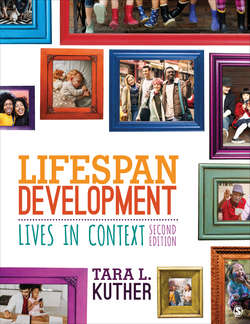Читать книгу Lifespan Development - Tara L. Kuther - Страница 219
На сайте Литреса книга снята с продажи.
Operant Conditioning
ОглавлениеAt birth, babies can learn to engage in behaviors based on their consequences, known as operant conditioning. Behaviors increase when they are followed by reinforcement and decrease when they are followed by punishment. For example, newborns will change their rate of sucking on a pacifier, increasing or decreasing the rate of sucking, to hear a tape recording of their mother’s voice, a reinforcer (Moon, Cooper, & Fifer, 1993). Other research shows that newborns will change their rate of sucking to see visual designs or hear human voices that they find pleasing (Floccia, Christophe, & Bertoncini, 1997). Premature infants and even third-trimester fetuses can be operantly conditioned (Thoman & Ingersoll, 1993). For example, a 35-week-old fetus will change its rate of kicking in response to hearing the father talk against the mother’s abdomen (Dziewolska & Cautilli, 2006).
As infants develop, they process information more quickly and require fewer trials pairing behavior and consequence to demonstrate operant conditioning. It requires about 200 trials for 2-day-old infants to learn to turn their heads in response to a nippleful of milk, but 3-month-old infants require about 40 trials, and 5-month-olds require less than 30 trials (Papousek, 1967). Infants’ early capacities for operant conditioning imply that they are active and responsive to their environments and adapt their behavior from birth.
